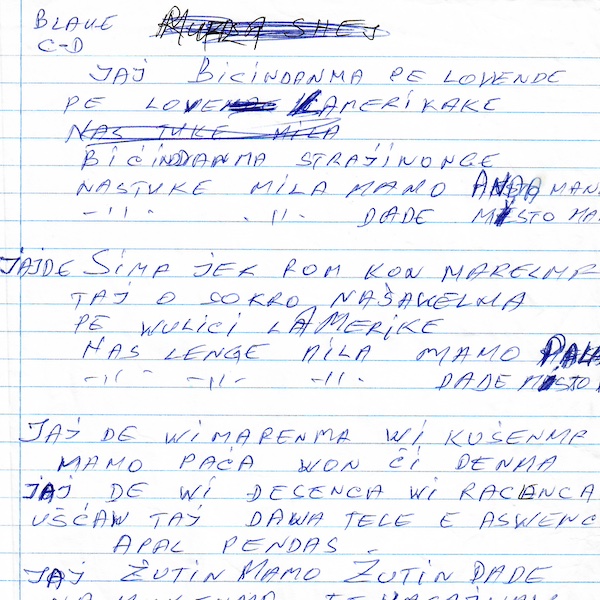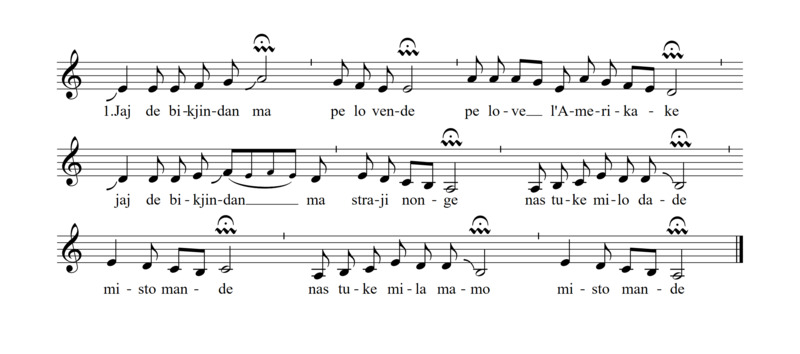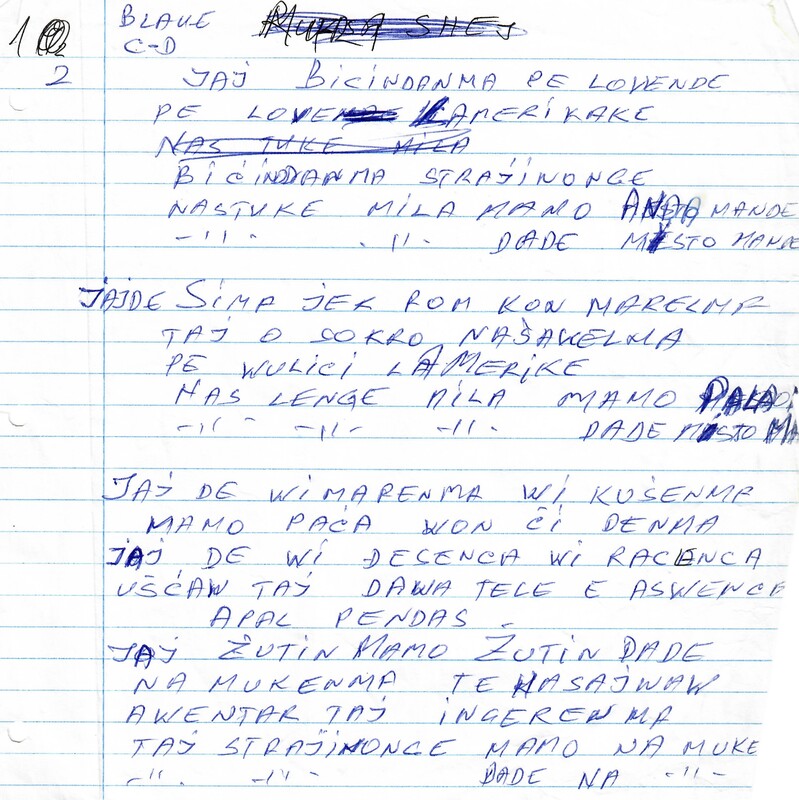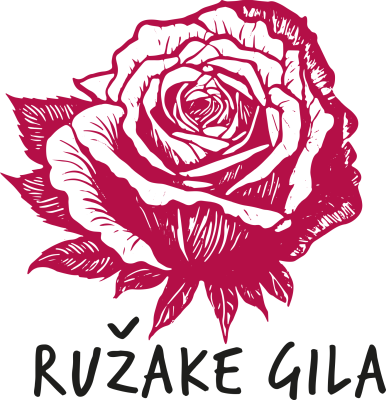
Bikjindan ma pe lovende
- Genre
- neues Lied
- Thema
- Klagelied
- DOI
- doi.org/10.21939/rgb8-x736
Content
Recordings
Bikjindan ma pe lovende is a sad song based on a true story. A young woman was married off to America, to another Roma group, and laments her hard fate.
musical transcription based on the booklet accompanying the CD Amare Gila - Unsere Lieder / Our Songs
In some Roma groups, it is customary to pay a dowry for a bride. As the bride becomes part of the groom's family upon marriage, this custom can be seen as a guarantee that she will be respected and treated well. However, in Bikjindan ma pe lovende this is not the case, and the bride says that she is mistreated by her new family. She accuses her parents of selling her to a foreign country for money and asks them to take her back.
During a performance at the Amerlinghaus in 1994, Ruža Nikolić-Lakatos sings Bikjindan ma pe lovende accompanied by Mišo Nikolić on the guitar and Moša Šišić on the violin.
On their CD Gelem, gelem, Ruža Nikolić-Lakatos and The Gypsy Family published this version of Bikjindan ma pe lovende under the title Amerikaki.
Commentary
(GERMAN ONLY) In this introduction to a concert at the Interkulttheater on October 9, 1993, Ursula Hemetek explains the context of Bikjindan ma pe lovende.
(GERMAN ONLY) During a performance at the Amerlinghaus in 1993, Ruža Nikolić-Lakatos and her husband Mišo Nikolić explain the true story on which Bikjindan ma pe lovende is based.
Lyrics
Stanza 1
| Jaj de bikjindan ma pe lovende, | You sold me |
| pe love l’Amerikake. | for American money. |
| Jaj de bikjindan ma strajinonge, | You sold me to strangers |
| nas tuke mila, dade, misto mande, | and you, father, didn’t have compassion |
| nas tuke mila, mamo, misto mande. | and you, mother, didn’t have compassion. |
Stanza 2
| Jaj de si ma jekh rom kon marel ma, | I have a husband who beats me |
| taj o sokro našavel ma | and my father-in-law chases me |
| pe vulici l’Amerikake, | on the streets of America, |
| naj lenge mila, mamo, pala mande | and they're not sorry for me at all, mother, |
| naj lenge mila, dade, misto mande. | they’re not sorry for me at all, father. |
Stanza 3
| Apal phendas: | Again she said: |
| Jaj de vi maren ma vi kušen ma, | They beat and insult me |
| mamo, pača von či den ma | and leave me no peace, |
| jaj de vi djesenca vi ratjanca, | Day or night |
| uštjav taj da ma tele e asvenca, | I get up and go to bed, always with tears in my eyes. |
| uštjav taj da ma tele e asvenca. | I get up and go to bed, always with tears in my eyes. |
Stanza 4
| Jaj de žutin, mamo, žutin, dade, | Mother, father, help me, |
| na muken man te xasajvav! | do not let me perish! |
| Aventar ta ingeren ma | Come and take me away from here, |
| taj strajinonge, mamo, na muken ma, | don’t leave me, mother, with the strangers, |
| taj strajinonge mamo na muken ma. | don’t leave me, mother, with the strangers. |
Manuscript by Mišo Nikolić
Zitierempfehlung anzeigen
Bitte zitieren Sie diese Seite wie folgt:
Music and Minorities Research Center, "Bikjindan ma pe lovende", Ružake gila, zuletzt besucht am Loading date..., doi.org/10.21939/rgb8-x736



